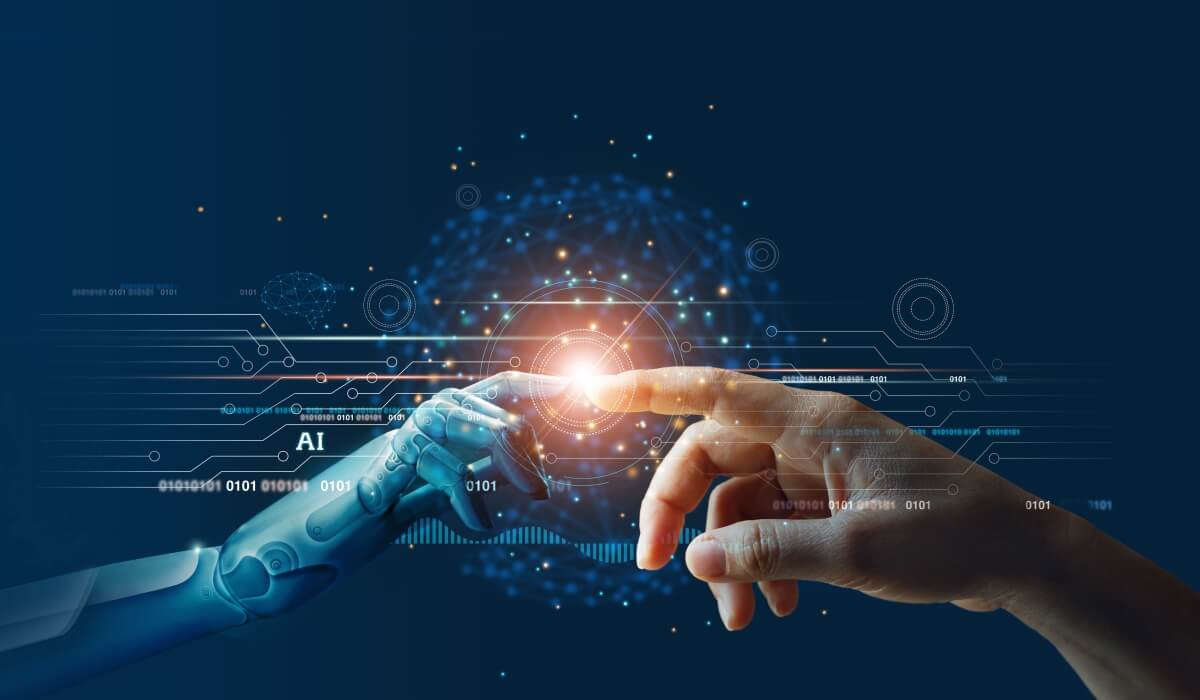Have you ever watched Richie Rich? The animated series which screened the rich rendezvous of little Richie Rich with his butler Cadbury, pet dog Dollar, and Irona, a robot maid, always by his side to save the day. While all the adventures of Master Richie were exciting, what fascinated the younger me more was the robot maid, Irona.
What seemed like science fiction years ago has become a reality, thanks to the advanced technology and innovation giving rise to Artificial Intelligence (AI). From smart camera vision systems at factories and warehouses to smartphones with Face ID lock screens, Artificial Intelligence has long been a part of our daily life.
But how did Artificial Intelligence come into the picture and what does the future look like? Let’s find out.
The Artificial Intelligence Evolution
Artificial Intelligence is nothing new for sci-fi writers – the fantasy roots can be traced back to Greek antiquity. However, bringing AI, in reality, was thought to be possible in the 1950s when British Mathematician Alan Turing introduced the idea of a machine that thinks. He then created the Turing Test which is still a benchmark test to determine a machine’s thinking ability.
In 1959, Marvin Minsky, an American Cognitive scientist further carried the thought and founded co-founded the AI laboratory of the Massachusetts Institute of Technology. By that time, thinkers outside the Artificial Intelligence labs have started picking up the idea and incorporating it into their field of work, movies, for example. Do you remember 2001: A Space Odyssey that was released in 1968? Marvin had advised director Stanley Kubrick while making the film, which represented AI closer to reality in the form of HAL 9000.
From Artificial Intelligence algorithms in the 1950s to symbolical algorithms and the development of expert systems in the 1970s and introducing Machine Learning in the 1990s, AI has evolved and spanned across sectors over time. However, it’s only now in the 21st century that people are realizing the true power of Artificial Intelligence.
AI in its true power
Have you ever thought of going to Mars? Well, the question might sound delusional for a common man now, but with rocket science and space technology taking big strides in the 21st century, this might come true in near future. NASA’s Mars robotic helicopter completing its first powered controlled flight is the first step towards bringing common man’s fantasy of going into space into reality.
Well, at least Elon Musk desires to land on Mars. He has once said so, “I would like to die on Mars. Just not on impact.” Maybe this dream has encouraged him to invest in OpenAI, non-profit research company. The tech-tycoon IBM received 9100 patents in 2018, 1600 of which are AI-related.
These are only two massive examples of how far and deep Artificial Intelligence research and development is going. There are plenty of investors and researchers across the world who have been ambitiously working on bringing AI’s future to reality.
The future of AI is now.
The speed at which the business world has adopted the data collection analysis in the past decade has fast-forwarded the world into the future of AI. Today, there hardly exists any industry that is devoid of data-driven models for product analysis, decision-making, and brand marketing.
Some have just boarded others are veteran travelers in the AI journey, but all these businesses have a long way to go. However, seeing the impact of AI in our daily lives, it would be an injustice to ignore other sectors other than businesses.
Here’s what the future of AI would be in our lives.
Transportation
In a decade or more autonomous cars will fill the roads taking us from place to place.
Manufacturing
AI-powered robots will be working alongside humans to perform a range of tasks such as stacking, assembling, and more.
Healthcare
Virtual nursing assistants will soon be a reality that will help healthcare staff to continuously monitor patients and with Big Data analysis create a more personalized experience.
Education
Virtual tutors will assist instructors and teachers and help analyze the facial expressions of students to determine who is bored or struggling to understand and needs a different approach to assist the individual needs.
Customer Service
Tech titan Google is working on developing AI assistants that can place calls and make appointments for your salon session or restaurant booking for example just like us humans.
AI has already started impacting every aspect of our lives. But it’s now that we have started harnessing its true power. And we certainly have a long way to go when Irona becomes the reality of every living room. Till then we can experience the progress and imagine the future of AI along with ours. And it could go both ways either the humans will control the machines or machines will control humans, that is if we don’t control our actions and curiosity.
And it was a warning, an alert from Elon Musk at MIT’s AeroAstro Centennial Symposium. “I’m increasingly inclined to think that there should be some regulatory oversight, maybe at the national and international level, just to make sure that we don’t do something very foolish. I mean with artificial intelligence we’re summoning the demon.”
For More Information: Click Here
– Vrushali R.





